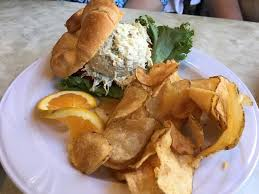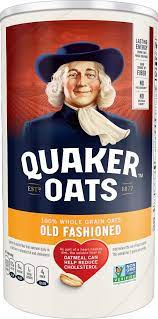My inspiration for writing this post was a meal I recently ingested at a restaurant located at a five-star resort. Note the phrase ingested rather than enjoyed or indulged in. Now, a much-hailed items at this eatery was homemade potato chips. Long overdue for lunch, I spotted a chicken salad sandwich, served on a croissant, served with a big heaping of said chips on a table nearby. It looked delicious; just the carb-filled sustenance that my body craved. I knew, as someone who is gluten-intolerant, that I would have to forego the croissant. But the chips--ooh, la, la.
 |
| A facsimile of the meal I craved, courtesy of Trip Advisor |
But quickly, and sadly, I learned that those delicious homemade potato chips were not, in fact, gluten-free. My only alternative–carrot and celery strips. But listen, restauranteurs, I beseech you. If you advertise homemade potato chips, let all of us enjoy them. It's an easy fix. Just put 'em in their own dang deep fryer.
As someone who has been gluten-intolerant for more than 30 years, it flummoxes me that today, even with all of the science and education available about the allergen; the places where it can be hidden (soy sauce, soups and processed meats--here’s looking at you); and the dangers of cross-contamination; that so many food and beverage outlets still get it wrong.
Please understand that for a guaranteed 100 percent gluten-free experience, food would have to be prepared in a kitchen where there are absolutely no traces of gluten. But for most people, if food is carefully prepared with tools that have not touched a source of gluten (i.e., a toaster, a deep fryer, an unwashed mixing bowl), most people with celiac disease and gluten intolerance are going to be just fine eating out at a regular restaurant.
So, as a long-time travel and wellness journalist and consultant, let me provide a little tutorial on the ABCs of GF.
Lesson #1: A GF label on a menu should only reference Gluten-Free, not Gluten Friendly.
The *GF I often see on menus these days connotes, when one reads the very fine print, "gluten-friendly".....not gluten-free. As I once said to a server, isn't gluten-friendly like being a little bit pregnant? Something is either gluten-free or it's not, and marking it gluten-friendly doesn't help anyone, even the gluten-trendy wannabe.
Lesson #2: Wheat is Wheat, Even by Another Name
Durum, semolina, farro and farina are simply wheat by another name. Spelt is a species of wheat, and it contains gluten, albeit not as much as your classic variety. Therefore, it will likely “spelt” trouble for those with gluten sensitivities. On the other hand, buckwheat, aka kasha, is not wheat. However, the problem with buckwheat products is that the buckwheat is often mixed with gluten-containing flours. So, eater beware.
 |
| verywellhealth.com |
Lesson #3: Getting Granular with Grains
 |
| NOT GF |
Grains that are gluten-free include millet, amaranth and teff, as are rice, corn and quinoa.
That's enough to digest for now. More lessons to come in an upcoming post.

No comments:
Post a Comment